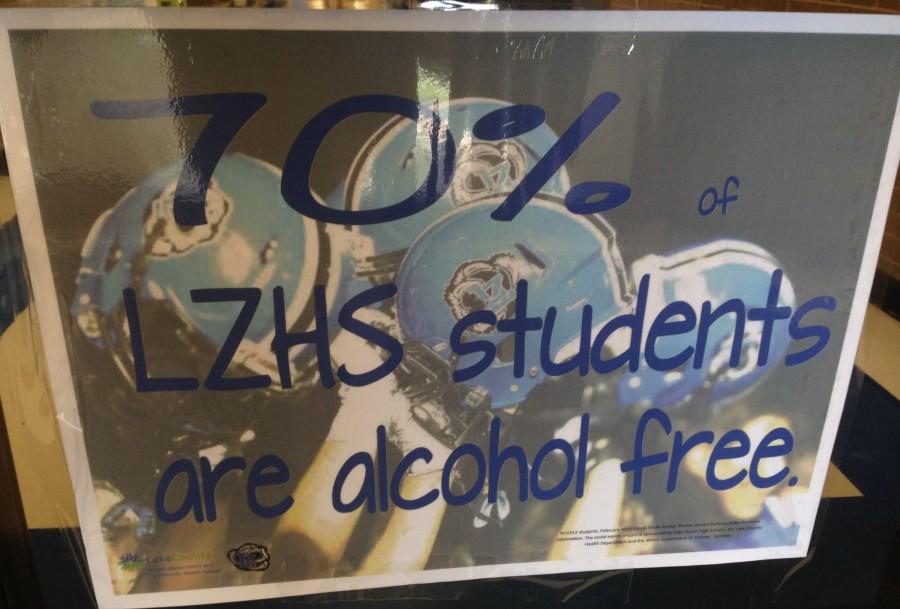Administration seeks to change stigma surrounding 70% posters
What students believe is inaccurate data collected from the Illinois Youth Survey, projected on posters and other media outlets around the school, is more reliable than students think.
Barbara Belke, student assistance program coordinator, leads administration in the social norms campaign for drug and alcohol use.
“That’s the behavior we’re targeting to change. When we looked at our data, we felt that [drug and alcohol use] would best fit the campaign,” Belke said.
The biggest misconception among students is accuracy of the data, according to Belke.
“I think they’re inaccurate,” Sarah Galateaneu, senior said. “Personally, I don’t think students are honest. There’s no way to get a 100% accurate answer from students who don’t take the survey seriously.”
What many students are unaware of is that most surveys, including Illinois Youth Survey, have a system of rejecting entries if questions are answered inconsistently, according to Belke.
Students also tend to overestimate the number of their friends who are involved with drugs and alcohol. This perception of behavior is the greatest predictor of a teen’s actual behavior, Belke said.
“If you think everybody’s doing it, you’re going to do it too because you think it’s ok and it’s no big deal,” Belke said.
This is why the social norms campaign is so important, Belke said. It’s important to dispel the incorrectly perceived thought the marketing principals used by social norms.
“[We hope] to promote the healthy behavior that we want students to do,” Belke said. “They don’t know that it happens to be the majority behavior.”

As a senior, Meggie is the Web Editor-in-Chief of Bear Facts Student Media. Previously, she was the Social Media Manager in charge of the staff Twitter...

